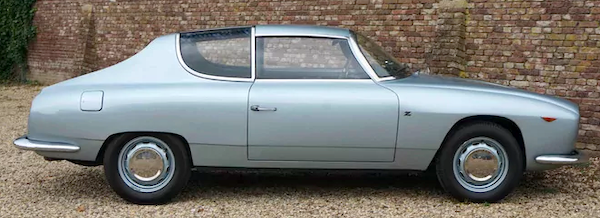According to Michael Lamm and David Holls (here, page 97) General Motors' shift to multi-brand body platforms began in 1931 from an analysis of current production bodies by Vince Kaptur. This took a while to implement, but was in force by the 1936 model year for all GM cars, perhaps aside from luxury vehicles.
Factors that brought this into play were the Great Depression that resulted in fewer sales and lesser income as well as the shift to all-steel bodies that required more expensive production tooling.
Platforms were designated by letter. The link above states:
"Harley Earl showed Kaptur's conclusions to Fished Body and suggested that all GM cars share four basic body shells. He designeted these A-B-C-D. The A-body would be used by Chevrolet, standard Pontiac and small Oldsmobile. The large Pontiac, mid-size Oldsmobile and small Buick would use the B shell. The C-body accommodated the big Olds, big Buick, LaSalle and small Cadillac. And all Cadillac and Buick limousines used the D body."
That was the concept, but details varied over time.
Wikipedia has entries dealing with the bodies dealt with in this post: A platform here; B platform here. At this time I drafted this (February 2024), some details did not agree with Lamm and Holls, who I am more inclined to trust regarding initial timing.
I lack charts of body dimensions, so the analysis below is simply based on study of photos. More precise information is greatly appreciated.
1938 Chevrolet Master DeLuxe - car-for-sale photo
All 1937-38 Chevys had A-bodies.
1937 Pontiac DeLuxe Six - Mecum Auctions photo
This is a fastback A-body that has a different aft side window profile.
1938 Oldsmobile F-38 Six - car-for-sale
A non-Chevrolet A-body with a slightly different rear.
1937 Buick Special - photo via Hemmings
Similar to the Pontiac above, though Wikipedia had this as a B-body.
1937 Buick Century - car-for-sale
A B-body car. But are not these two-door sedans essentially the same body styles regardless of A and B category? I discuss this problem in the previous post.





















































